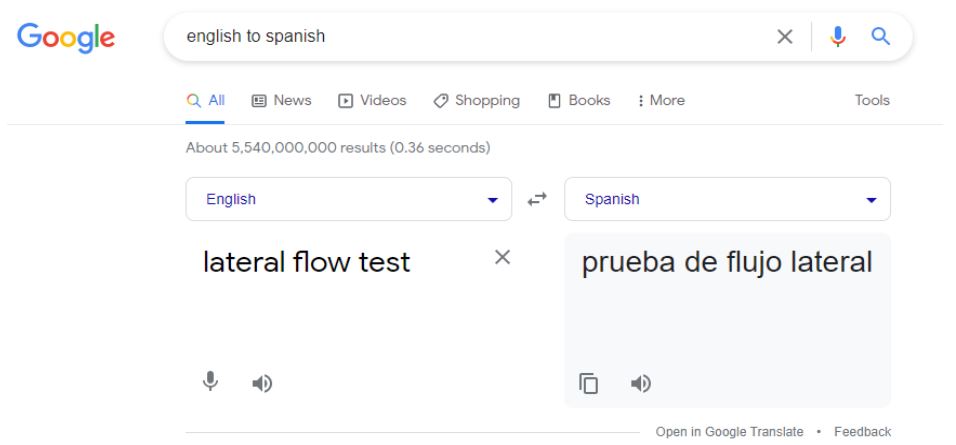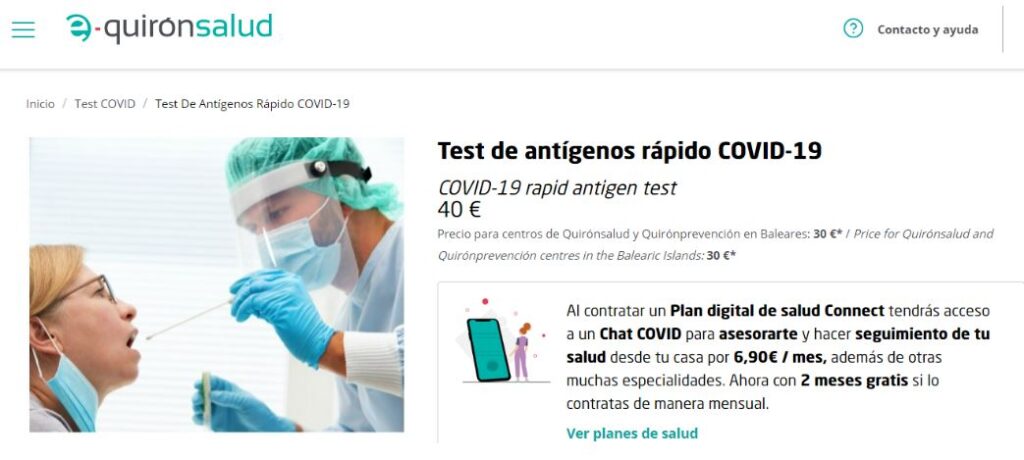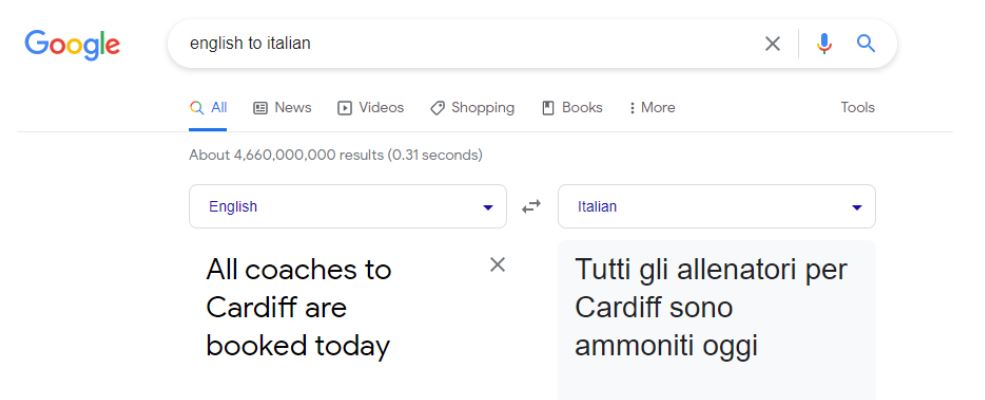5 reasons why Google Translate is still not good enough
We all know Google Translate – there’s no denying that the popular online translation service is super-useful. It’s free, quick and handles a vast range of language combinations. When you’re stuck on what a short snippet of text might mean, it’ll steer you in the right direction.
But like a fun yet flaky friend, Google Translate for business cannot be trusted to deliver when it counts. It is not your ally when it comes to producing translations that require accuracy, a particular tone of voice or that need to appeal authentically to a specific target audience. For all its handiness, Google Translate is not a professional translation tool and needs to be treated with extreme caution when it comes to business communications.
While it might be perfect for translating a short review or deciphering a holiday menu, if you’re a company owner or marketing manager handling international communications, Google Translate for business is not what you need.
For a nuanced, tailored translation you will be better served working with a reputable translation agency. In this article we deep-dive into why Google Translate can’t be trusted for your business communications.
How does Google Translate work?
Google Translate’s simple, intuitive design hides the complex ‘deep’ machine learning neural practice that sits behind it. To produce its translations it compares entire sentences from wider linguistic resources in an attempt to produce an accurate translation.
If it’s so clever, why is Google Translate such a bad idea?
Deep learning ensures that Google Translate is improving all the time. But this ‘learning’ state lags far behind the linguistic capabilities and knowledge of a real translator. With a full command of their languages and the ability to use them to full effect, translators remain way out in front when it comes to communicating effectively.
Here are 5 key reasons why you can’t trust Google Translate with your content
1) It does not have any technical expertise
Google Translate (as it happens when using ChatGPT for translation) falls short when it comes to the accurate translation of a technical document (e.g. an electronic engineering manual, or a medical paper) because it has no technical expertise. Without an understanding of the concepts and terminology of a particular field, terrible inaccuracies and mistakes will appear in your texts.
Google Translate is capable of producing catastrophically poor translations of specialist terms. In this example, it gives the wrong Spanish translation of ‘lateral flow test’ – the kind of mistake that would cause irreparable damage to sales and reputation should it appear on a healthcare company’s website or brochure.

This website uses the correct term for ‘lateral flow test’ in Spanish – ‘test de antígenos rápido’.

Source: https://e-quironsalud.es/test-covid/82-test-antigeno-rapido
Translators tend to specialise, so you can develop a long-term working relationship with an agency or translator with in-depth knowledge of your field. There are translators with technical expertise in the spheres of medicine, the automotive industry and finance, for example.
2) It can’t always understand context
Google Translate is contradictory, being simultaneously extremely clever and very silly. This is because it is often blind to the context of what it is translating.
Imagine you’re the manager of a coach (bus) company and you want to put up a sign saying that all your coaches are fully booked. Enter this lone sentence into Google Translate and it produces a translation indicating that all ‘coaches’ (as in football or netball coaches) are fully booked. It is a basic error illustrating how wrong Google Translate can be because it doesn’t pick up on context.

Almost all of us have giggled about a silly translation error that has damaged a business name or product. Even a seemingly small language mistake can have a significant impact when it comes to tarnishing a company name.
Translating in a marketing environment is a serious business and there’s a lot of translation blunders to choose from…
Coors ran a highly successful campaign in the U.S. under the slogan ‘Turn it loose!’ to promote its twist-top beer. Sounds good? Unfortunately, someone took their eye off the ball when it came to bringing the same sense to the slogan for the Spanish-speaking market. By taking a context-blind, word for word literal approach, the Spanish slogan they ended up with roughly translated as “Suffer from Diarrhea!“. Not at all the desired effect!
3) It does not understand your target audience
When choosing a copywriter for a website or newsletter, businesses take great care to select someone who understands their ideal customers and their pain points. You need to treat choosing a translator with the same care.
Translating directly from an original text crafted for one market won’t necessarily work in another. Your international target audience will have different cultural cues, habits and conventions. A native translator will understand these and adapt the source text to reflect and appeal to the prospects you have in your sights. This is essential to build trust and move them to take action – and entirely beyond the limitations of Google Translate.
4) It cannot create the right tone of voice
As a business, you invest in developing a tone of voice aligned with both your company values and your target audience. Letting Google Translate loose on this carefully considered asset will destroy the tone, register and mood of your texts as you expand into new markets.
A specialist marketing translator will ask for an idea of your target audience to create a compelling and consistent tone of voice in the target language. This will both retain your original brand identity and resonate with the new market.
5) It does not protect your personal data
Before diving into Google Translate, it is important to familiarise yourself with its privacy policy and consider whether it is appropriate to enter your data into the translation tool.
The terms and conditions under which Google Translate operates allow it to harvest and save any information you enter, which has serious implications from a customer confidentiality point of view.
Giving Google Translate a licence to collect, store and process any information entered into the service may violate aspects of data protection legislations like the California Consumer Privacy Act (CCPA) and the General Data Protection Regulation (GDPR).
Choosing a reputable translation company to translate confidential documents will assure a completely secure service.
Go beyond Google Translate for business to power up your brand
While Google Translate undoubtedly has its uses, it is clear that it’s not the right tool for business translations.
Google Translate is essentially a machine (albeit an impressive one) churning out words it doesn’t really understand. It cannot offer technical expertise, an understanding of context or create a compelling tone of voice. As such, it is capable of wreaking havoc on international communications.
Words have power – treat them wisely and use a real translator! If you have any questions, contact us and we will be pleased to help you.
